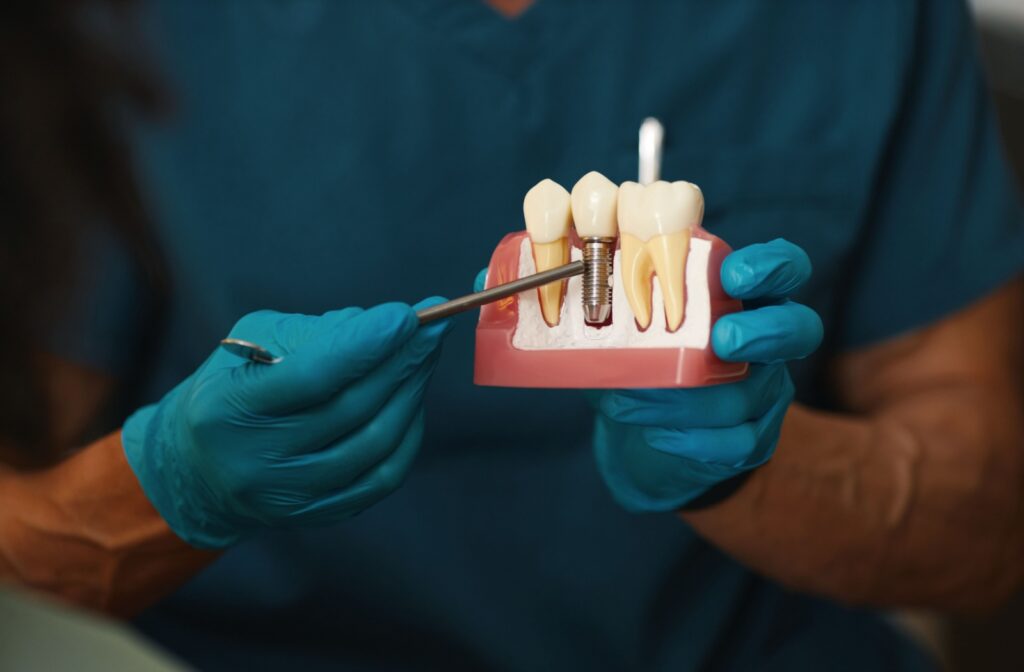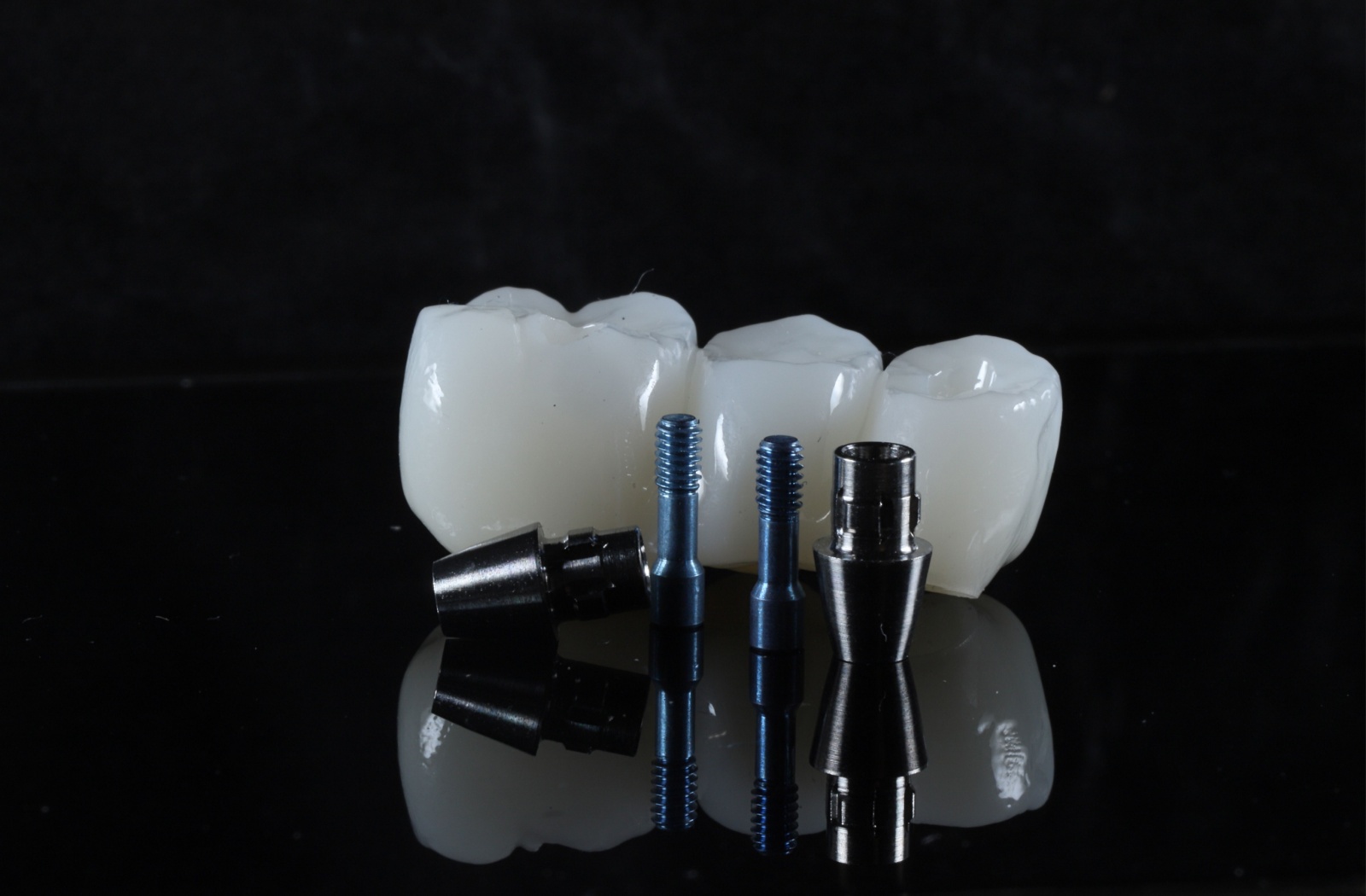Dental implants are a widely used solution for replacing missing teeth, offering both durability and a natural appearance. But a common concern among many people considering this procedure is the potential discomfort or pain involved.
Dental implants are not painful, and although some minor discomfort is expected during the procedure and recovery, modern technology and techniques have made the dental implant process a more manageable and comfortable experience.
Understanding the implant process, from the surgical placement to the recovery period, can help alleviate fears and provide clarity about what to expect. Your dentist is a good person to talk to about what to expect with the dental implant process, as they can offer personalized advice for everything from start to finish, including whether your insurance plan covers the cost.
What Are Dental Implants?
Dental implants are a permanent solution designed to replace 1 or more missing teeth. They mimic the structure of natural teeth, with 3 main components:
- The implant: A titanium screw that acts as the root of the tooth. The screw is surgically placed into your jawbone.
- The abutment: A small connector that attaches the implant to the artificial tooth.
- The crown: The visible part of the tooth, designed to look and function like your natural teeth.
Dental implants do more than just restore your smile. They also:
- Help maintain the structure of your jawbone
- Enhance your ability to chew and speak with ease
- Prevent neighbouring teeth from shifting
What Happens During Dental Implant Surgery?
A key question people often ask is, “Will it hurt?” Understanding the process can ease some of these concerns.
Consultation & Preparation
Before the procedure, your dentist will perform a thorough evaluation, including:
- X-rays or 3D imaging to assess your bone structure
- Discussing your medical history and ensuring you’re a good candidate
The Implant Procedure
Contrary to what you might imagine, dental implant surgery is typically painless. Here’s what to expect:
- Local anesthesia: Your dentist will numb the area with local anesthesia to keep you comfortable during the procedure. Sedation is also an option if you’re feeling particularly anxious.
- Implant placement: A small incision is made in the gum to access the jawbone. The titanium implant is then placed securely into the bone.
- Healing period: Over the next few months, your jawbone fuses with the implant in a process called osseointegration. This is a crucial step for ensuring the implant’s stability.
- Attaching the crown: Once healed, the crown is attached, completing the restoration process.

Thanks to modern techniques, the procedure is performed with precision, reducing trauma to the surrounding tissues.
Post-Surgery Discomfort
After the procedure, some mild discomfort is normal, including:
- Swelling of the gums and face
- Soreness at the implant site
These symptoms typically subside within a few days and can be managed easily with over-the-counter pain medications and cold compresses. Your dentist may also prescribe medication if needed.
How Do I Care for My Dental Implant?
Once your dental implant is in place, proper care is crucial for its longevity and to prevent complications. The good news is that implants don’t require any special maintenance beyond a good oral hygiene routine. Follow these tips for long-term success:
- Brush daily: Use a soft-bristled brush to avoid damaging your gums.
- Floss regularly: Special floss or water flossers can help clean around the implant.
- Visit your dentist: Regular check-ups allow your dentist to monitor the health of your implant and the surrounding tissue.
- Avoid smoking: Smoking can interfere with the healing process and increase the risk of implant failure.
With proper care, dental implant crowns can last for 15 to 20 years, or longer, making them an excellent investment in your oral health.
Why Should I Choose Dental Implants?
Dental implants offer a wide range of benefits compared to other tooth replacement options like dentures or bridges:
- Natural appearance: Implants are designed to resemble and function like your natural teeth.
- Permanent solution: No need for adhesives or nightly removal, unlike dentures.
- Improved jaw health: Implants stimulate bone growth and prevent bone loss that typically occurs after losing a tooth.
- Enhanced comfort: You can eat, speak, and smile without worry.
- Cost-effective: Although implants may seem costly upfront, they’re a long-term solution that can save you money on future dental work.
These advantages outweigh any temporary discomfort experienced during or after the surgery for many people.
Friendly Dental Care in Calgary
We understand that the idea of dental implants can feel overwhelming. That’s why we prioritize your comfort at every step. Our experienced team uses advanced techniques and tools to make the process as smooth as possible. We are here to address your concerns, answer your questions, and ensure you’re fully informed before proceeding. Whether you’re missing a single tooth or multiple teeth, dental implants could be the right solution for you. So, call our friendly team at Ti Dental today to request an appointment to discuss dental implants with Dr. Trac or Dr. Shum.








